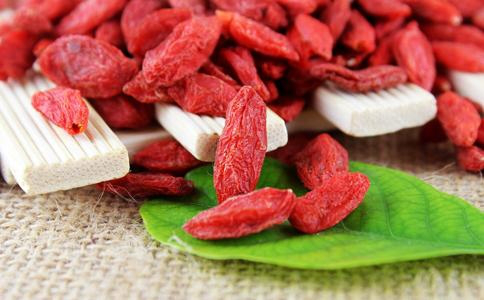Goji berries are native to China, the Tibetan Himalayas and India. These berries are tart and barely sweet, and they’re used in salads and oatmeal.
Despite their benefits, excessive consumption of these berries has been linked to negative effects. If you take any medications, be careful as the berries may interact with them.
Some people may experience allergic reactions to goji berries (1). In this article, you will learn about the possible negative effects of the berries. Continue reading to learn more.
What are the facet results of Goji Berries
This article contains a number of useful articles.
- Might Trigger Drug Interactions
- Could Decrease Blood Sugar Method Too Much
- Could trigger allergy symptoms
- Might Trigger Hypotension
- Might Lead To Diarrhea
- Might Trigger Miscarriage
- Might Trigger Drug Interactions
Goji berries work well with certain medications, including warfarin. In an experiment, a woman aged 71 took goji juice while she was taking warfarin. The woman experienced bruising and rectal bleeding (2). After she stopped drinking the juice, her symptoms improved.
The juice of the goji berry is a popular natural drink which may increase bleeding. It enhances and interacts with anticoagulants like warfarin (3).
Subscribe to our Newsletter
- Could Decrease Blood Sugar Method Too Much
Goji berries can decrease blood sugar ranges. Goji berries have been identified as possible treatment options for diabetes (4). If you’re already taking diabetes medication, however, these supplements could cause your blood sugar levels to drop too much.
Goji berries are not directly linked to hypoglycemia. It’s better to be cautious. If you’re presently taking diabetes treatment, please consult your doctor before consuming Goji berries.
- Could trigger allergy symptoms
Goji berries can cause anaphylaxis – a condition in which the body becomes hypersensitive. These reactions may be caused by the lipid-switch proteins in the berries.
Anaphylaxis symptoms include hives and airway obstruction. They can also cause gastrointestinal problems or shock. Goji berries should only be consumed by people who are prone to food allergies.
- Might Trigger Hypotension
Goji berries have been shown to help lower blood pressure levels (7). It’s great news but it could cause problems if someone is taking hypertension medication.
Goji berries may improve the action of medications that reduce blood pressure. Hypotension and blood pressure levels can plummet to dangerously low levels.
There’s a possibility, even though there isn’t a direct test to confirm this. If you’re already taking medication to treat hypertension, you should consult your doctor before you consume goji berries.
- Might Lead To Diarrhea
One case report describes a person who consumed goji tea (goji berries) and experienced non-bloody diarrhoea. They also reported stomach pain. It was discovered that the berries modulated certain genes in the human body. Another possible explanation for these adverse effects could be contamination (8).
If you have digestive issues, consult your doctor before consuming Goji berries.
- Might Trigger Miscarriage
Goji berries comprise betaine (9). Betaine can also be used to induce menstruation or abortion. The berries have a similar estrogenic effect. They should not be used by women who are pregnant, lactating or have a condition that is sensitive to estrogen.
The conclusion of the article is:
Goji berries have a lot of health benefits. They are rich in vitamins. However, excessive consumption of the berries can have some serious side effects on some people.
Consult your doctor before including berries to your diet. This fruit is not suitable for pregnant or nursing women.
Asking Questions Without Ceasing
How many goji berries should you consume per day?
You can eat up to 15 g goji berries per day (8). This quantity is considered beneficial for eye health as it contains 3 g zeaxanthin. The protected daily limit of gojiberries is not yet known.
Goji berries are safe for diabetics.
Yes, they do. These berries can management blood sugar ranges. According to one study, goji fruit has anti-diabetic properties, which could stabilize glucose levels in the blood.
Can berries make you achieve weight?
No evidence exists that berries can cause weight gain. Instead, they may lower cholesterol levels in the body (12). It may help with weight loss.
12 sources
StyleCraze articles are backed up by peer-reviewed research papers, academic journals, reputable organizations, research institutions, and medical associations. This ensures accuracy and relevance. For more information, please see our editorial coverage.
Goji berries, (Lycium Barbarum): risk of allergic reactions, Journal of Investigational Allergology & Medical Immunology. US Nationwide Library of Drugs. Nationwide Institutes of Health.
https://www.ncbi.nlm.nih.gov/pubmed/23101309
Pharmacotherapy, US National Library of Drugs and Nationwide Institutes of Health. Possible interaction between Lycium Barbarum (goji).
https://www.ncbi.nlm.nih.gov/pubmed/22392461
Toxicology Studies: Bleeding from a possible interaction between warfarin (Lycium Barbarum L.) and Gouqizi, US National Library of Drugs. Nationwide Institutes of Health.
https://www.ncbi.nlm.nih.gov/pmc/articles/PMC5598317/
Goji Berry (Lycium Barbarum), within the treatment of diabetes melitus, Meals Analysis ResearchGate.
https://www.researchgate.internet/publication/319200037_Goji_Berry_Lycium_Barbarum_in_the_treatment_of_diabetes_melitus_a_systematic_review
Journal of Investigational Allergology & Medical Immunology. US Nationwide Library of Drugs. Nationwide Institutes of Health.
https://www.ncbi.nlm.nih.gov/pubmed/22312943
Canadian Household Physician.
https://www.ncbi.nlm.nih.gov/pmc/articles/PMC2954079/
US Nationwide Library of Medicine, Nationwide Institutes of Health. Anti-hypertensive effect of Lycium Barbarum L.
https://www.ncbi.nlm.nih.gov/pmc/articles/PMC4525921/
Goji Berries: A Potential Pure Antioxidant Drugs. An Insight into their Molecular Mechanisms of Action, Oxidative Drugs & Mobile Longevity. US National Library of Drugs. Nationwide Institutes of Health.
https://www.ncbi.nlm.nih.gov/pmc/articles/PMC6343173/
ResearchGate: Goji Berry (Lycium Barbarum): Composition and Health Results – An Assessment, Polish Journal of Meals and Diet Sciences.
https://www.researchgate.internet/publication/288630233_Goji_Berry_Lycium_barbarum_Composition_and_Health_Effects_-_A_Review
Natural Drugs and Biomolecular Points of Chinese Wolfberry, National Center for Biotechnology Data.
https://www.ncbi.nlm.nih.gov/books/NBK92756/
US National Library of Drugs and Nationwide Institutes of Health, Medicinal Chemistry: Sensible Use of Anti-Diabetic Efficacy of Lycium barbarum Polysaccharide for Patients With Type 2 Diabetes.
https://pubmed.ncbi.nlm.nih.gov/25381995
Strawberries Blueberries and Cranberries in the Metabolic Syndrome : Medical Views. Journal of Agricultural and Food Chemistry. US Nationwide Library of Drugs. Nationwide Institutes of Health.
https://pubmed.ncbi.nlm.nih.gov/22082311


